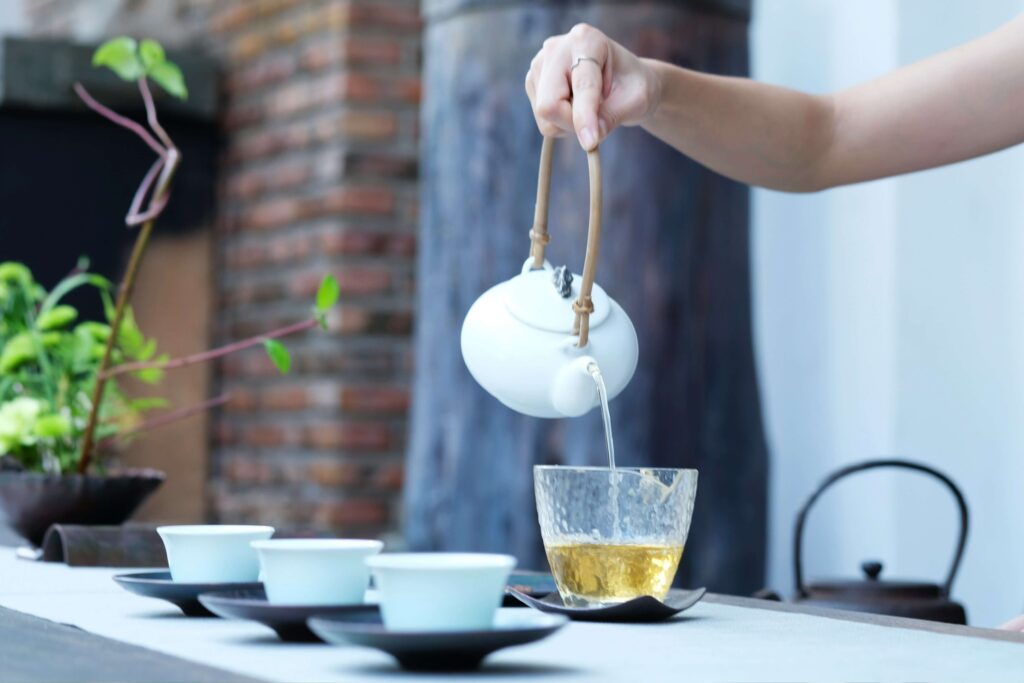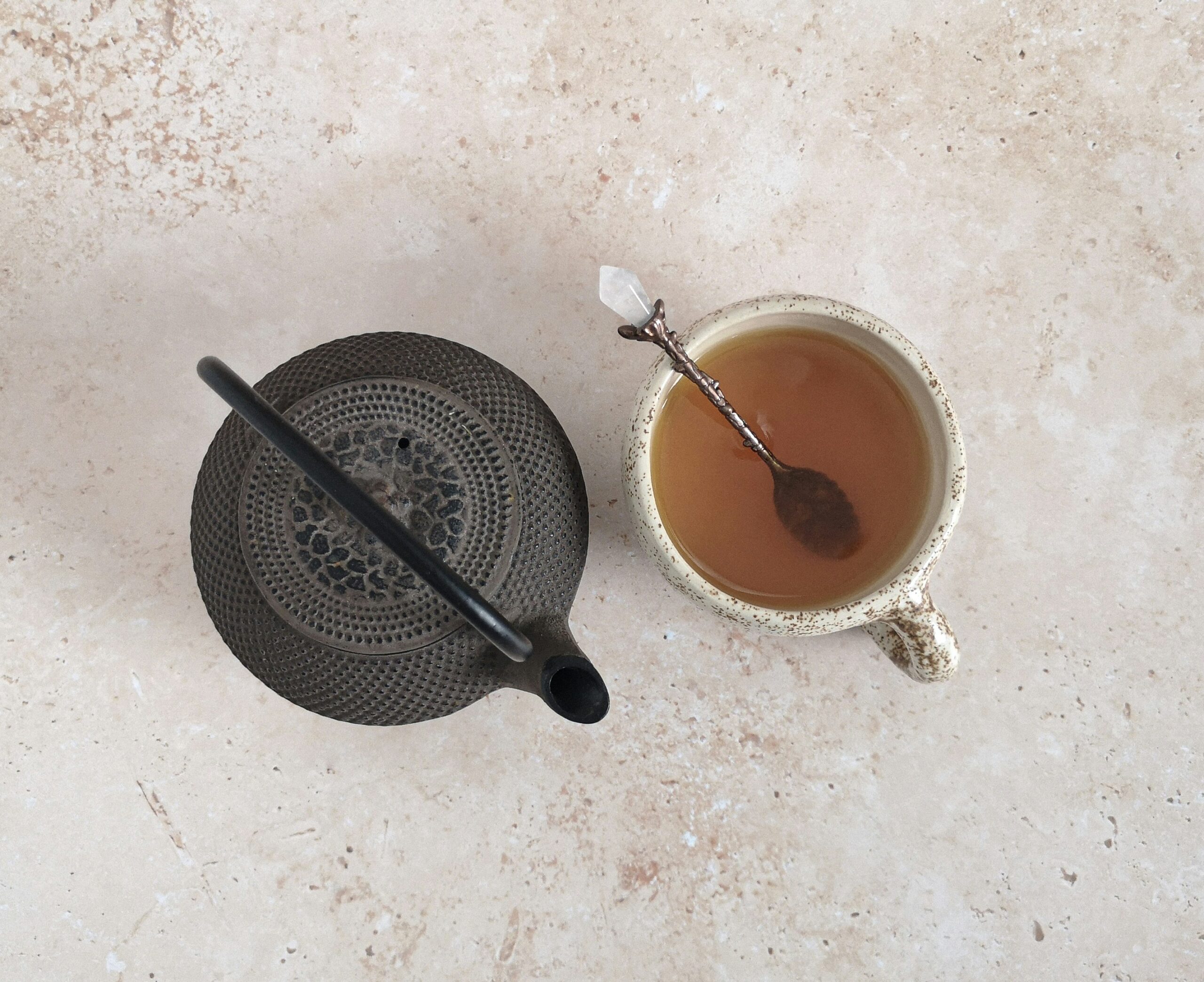
Looking to boost your immune system in a natural way? Herbal teas might be just what you need. Packed with antioxidants and powerful herbs, these teas can help support and strengthen your immune system. Peppermint tea and chamomile tea are especially known for their immune-boosting properties, offering a simple yet effective way to maintain your health.
Consuming herbal teas regularly can provide multiple health benefits. Ginger tea, for example, is renowned for its anti-inflammatory and antioxidant properties that support immunity. Similarly, green tea is filled with polyphenols, which are compounds that fight infections and contribute to a stronger immune response.
When thinking about the best herbal tea for immune support, it’s crucial to consider the quality and preparation of the tea. Herbs like ginseng and echinacea are especially beneficial, often found in blends aimed at boosting health. Integrating these teas into your daily routine can be a simple step towards maintaining a robust immune system.
Key Takeaways
- Herbal teas like peppermint and chamomile support immune health.
- Regular consumption of herbal teas offers multiple health benefits.
- Quality and preparation of herbal teas are crucial for effectiveness.
RELATED: Elderberry Tea Benefits: How to Boost Your Immune System Naturally
RELATED: Best Herbs for Tinctures: A Comprehensive Guide
RELATED: Herbs for Nerve Regeneration: Natural Remedies to Boost Healing
Understanding the Immune System
Your immune system is your body’s defence against pathogens like bacteria and viruses. It works 24/7 to keep you healthy and prevent illness. This system is complex and involves various types of cells and mechanisms that recognise and fight off invaders.
Antioxidants play a crucial role in supporting your immune health. They help neutralise harmful free radicals, which can damage cells and weaken your immune response. Many herbal teas contain high levels of antioxidants, making them beneficial for maintaining your immune health.
Different components of your immune system include white blood cells, antibodies, and other molecules that identify and destroy pathogens. When your body encounters a pathogen, it responds by activating these defences to protect you.
A strong immune system helps you stay healthy by promptly responding to threats. Lifestyle choices, such as a balanced diet rich in antioxidants, regular exercise, and adequate hydration, can enhance your immune response.
Herbal teas, known for their health benefits, are often rich in antioxidants and other compounds that support your immune system. Some popular choices for boosting immune health include green tea, chamomile tea, and ginger tea.
Each of these teas has unique properties that contribute to overall health. Green tea, for instance, is known to have five times the antioxidant level of regular green tea when combined with other substances, providing a significant boost to your immune system. To learn more about the benefits of green tea, you can check this resource.
Maintaining a healthy immune system is vital for preventing illness and staying fit. Incorporating antioxidant-rich herbal teas into your daily routine can be a simple yet effective way to support your immune health.
The Role of Herbal Teas in Immunity
Herbal teas provide numerous benefits for your immune system, thanks to their antioxidant properties and antiviral abilities. These natural drinks can help keep you healthy and bolster your body’s defence mechanisms.
Antioxidant Properties of Teas
Herbal teas are rich in antioxidants which help protect your cells from damage. For instance, green tea contains catechins that are known to boost overall immune function. Antioxidants neutralise free radicals, reducing oxidative stress that can weaken your immune system.
Other examples include chamomile tea, which has flavonoids. These compounds can also support immune health by acting as antioxidants. Drinking these teas regularly can help maintain a healthy immune system and decrease the chance of getting sick.
Herbal Teas as Antiviral Agents
Certain herbal teas have antiviral properties that can help you fight off infections. For example, elderberry tea has been shown to inhibit flu viruses and echinacea tea can enhance your body’s resistance to infections. These teas help by directly attacking the viruses and boosting the immune response.
Liquorice root tea is another option with antiviral benefits. Studies suggest it can combat a range of viruses. By drinking antiviral herbal teas, you can better prepare your immune system to fend off various pathogens.
Popular Immune-Boosting Herbal Teas
Different herbal teas offer unique benefits that may help enhance your immune system and overall well-being. Here, you will find teas like ginger for digestion and turmeric for inflammation, which are known for their immune-boosting properties.
Ginger Tea and Immunity
Ginger tea is renowned for its ability to support the immune system. Ginger contains compounds like gingerol and shogaol, which have anti-inflammatory and antioxidant properties. These can help reduce oxidative stress and inflammation in your body. Drinking ginger tea can also help soothe a sore throat and relieve congestion, making it a good choice during cold and flu season.
The Benefits of Turmeric Tea
Turmeric tea is another popular beverage for boosting immunity. Turmeric contains curcumin, a powerful antioxidant with strong anti-inflammatory effects. Curcumin can help the body fight off infections by boosting the activity of immune cells. Turmeric tea is also known to improve digestion and support liver health, which can further contribute to overall immune function.
Green Tea for Enhanced Antioxidant Support
Green tea is rich in flavonoids and antioxidants such as catechins. These compounds help protect your cells from damage and support your immune system. Drinking green tea regularly can enhance your body’s defence mechanisms. It’s also a great source of L-theanine, an amino acid that can improve your body’s immune response while promoting relaxation.
Chamomile Tea and Sleep Quality
Adequate sleep is crucial for a strong immune system, and chamomile tea is known for its calming effects. Chamomile contains antioxidants like apigenin, which can help reduce stress and improve sleep quality. Better sleep supports your body’s ability to fight off infections. Drinking chamomile tea before bed can help you relax and get a good night’s sleep, aiding your immune health.
Peppermint Tea and Respiratory Health
Peppermint tea can support respiratory health, which is vital for a strong immune system. Peppermint contains menthol, which has decongestant and soothing properties. This can help relieve symptoms of colds and sinus infections. The tea also has anti-inflammatory and antimicrobial properties, which can further assist in keeping your respiratory system healthy.
Hibiscus Tea as an Immune Aid
Hibiscus tea is packed with vitamin C, an essential nutrient for immune function. Hibiscus also contains antioxidants like flavonoids, which help protect your cells and boost your overall health. Drinking hibiscus tea can help lower blood pressure and reduce inflammation, providing extra support to your immune system. Its tangy flavour makes it a delicious and nutritious option.
Key Ingredients in Immune-Boosting Teas
Immune-boosting teas often include specific spices, herbs, and natural sweeteners that support your immune system. These ingredients add health benefits and make the tea more enjoyable to drink.
Spices and Herbs with Immune Properties
Ginger is known for its anti-inflammatory and antioxidant qualities. It can help reduce inflammation and boost your immune response.
Turmeric contains curcumin, a compound with potent anti-inflammatory effects. Drinking tea with turmeric can help keep your immune system strong.
Lemon is rich in vitamin C, which is essential for maintaining a healthy immune system. Adding lemon to your tea can increase its vitamin content significantly.
Mint offers soothing effects and can help with digestion, another key aspect of maintaining overall health.
Lemongrass has antioxidant properties, which help protect your body from cellular damage. Including lemongrass in your tea makes it both tasty and beneficial.
Licorice root is not only sweet but also has antiviral and antimicrobial properties. It can help protect you from various infections.
Natural Sweeteners and Their Benefits
Honey is a popular natural sweetener that offers more than just flavour. It has antimicrobial and antioxidant properties, which can boost your immune response.
Stevia is another natural sweetener derived from the leaves of the Stevia plant. It does not spike your blood sugar levels and can be an excellent choice if you are watching your sugar intake.
Maple syrup provides a good amount of antioxidants and can be a healthier alternative to regular sugar. It also adds a rich, unique flavour to your tea.
Using natural sweeteners not only enhances the taste of your tea but also adds nutritional benefits. These sweeteners often come with their own set of nutrients that synergise with the herbs and spices in your tea for a full immune-boosting experience.
The Impact of Antioxidants on the Immune System
Antioxidants play a key role in supporting your immune system. They help neutralise free radicals, which are unstable molecules that can damage cells. By reducing this damage, antioxidants can help your immune system function more effectively.
Polyphenols are a type of antioxidant found in many plants. These compounds have been shown to boost immunity by increasing the activity of immune cells. Polyphenols can be found in foods like green tea, which contains catechins, a specific group of polyphenols.
Catechins have strong antioxidant properties. They help protect against infections by enhancing your body’s natural defence mechanisms. Drinking green tea, which is rich in catechins, can be particularly beneficial for your immune health.
Free radicals are produced by normal bodily processes and external factors like pollution. An imbalance between free radicals and antioxidants can lead to oxidative stress, weakening your immune system. Consuming foods and beverages high in antioxidants can help maintain this balance.
Herbal teas are excellent sources of antioxidants and can support your immune health. Green tea, in particular, has been widely studied for its numerous health benefits. Its antioxidants help reduce inflammation and improve the body’s ability to fight off illnesses.
In summary, incorporating antioxidants like polyphenols and catechins into your diet can significantly boost your immune system. Herbal teas, especially green tea, are a simple and effective way to achieve this. For more detailed information, you can explore these studies on the benefits of antioxidants on the immune system.
Cultural Traditions in Immunity Teas
Herbal teas have long been an integral part of many cultures for boosting the immune system. Both Chinese and Japanese traditions offer unique approaches to using teas for wellness, focusing on specific herbs and preparation methods.
Chinese Tea Remedies for Cold and Flu
In China, traditional medicine has used herbal teas for centuries to combat cold and flu. Popular teas include ginger tea, which is known for its warming properties. Ginger helps to relieve nasal congestion and soothe sore throats.
Another common choice is chrysanthemum tea. This tea is praised for its ability to reduce inflammation and fever, making it a go-to remedy during flu season.
Licorice root tea is also widely used. It is valued for its antiviral properties and ability to ease coughing. Drinking these teas regularly is part of many people’s lifestyle in China, blending tradition with health benefits.
Japanese Teas and Wellness
In Japan, green tea holds a special place in promoting overall wellness. Matcha, a powdered green tea, is rich in antioxidants that support the immune system. It is commonly included in daily rituals to maintain good health.
Shizuoka Sencha is another popular tea. This green tea is known for its refreshing taste and immune-boosting properties. It helps detoxify the body and improve digestion.
Kukicha, or twig tea, is made from the stems and twigs of the tea plant. It is consumed for its calming effects and high levels of minerals. These teas are often enjoyed as part of a balanced lifestyle, reflecting Japan’s focus on harmony and wellness.
How to Integrate Herbal Teas into Your Daily Routine
Start your day with a cup of herbal tea. Replace your morning coffee with a soothing herbal blend like chamomile or peppermint. This helps ease you into the day while maintaining your hydration levels.
Mid-morning is an excellent time for another cup. Opt for teas that boost energy without caffeine, such as ginseng or ginger tea. These teas can help sustain your energy levels in a natural way.
Incorporate herbal teas into your afternoon break. Green tea or echinacea tea can be great choices. They contain antioxidants that support your immune system and contribute positively to your overall wellness routine.
Consider having a cup of herbal tea before bed. Teas such as valerian root or lavender can help promote relaxation and improve sleep quality. Integrating these teas into your nightly routine can create a calming end to your day.
Use tea bags for convenience. They make it easy to prepare a quick cup wherever you are, whether at home, work, or even on the go. Look for organic options to avoid pesticides and harmful chemicals.
To make this a consistent part of your lifestyle, keep a variety of herbal teas at hand. Mix and match different flavours to keep your palate excited. Having options encourages the habit of reaching for a healthy tea instead of sugary drinks.
By turning to herbal teas throughout your day, you build healthy habits that support your immune system and enhance your wellness routine.
Considering Quality and Preparation of Teas
When choosing herbal teas for boosting your immune system, quality is key. Opt for organic teas. They are grown without chemicals or pesticides, ensuring a purer product for you.
Tea bags are convenient, but loose-leaf tea often offers better quality. Loose leaves allow water to circulate more, leading to a richer flavour and possibly more nutrients.
Preparation methods matter. For a stronger immune-boosting tea, use proper infusion techniques. Steeping times and temperatures can affect the tea’s benefits. Here’s a simple guide:
| Tea Type | Steeping Time | Water Temperature |
|---|---|---|
| Green Tea | 2-3 minutes | 70-80°C |
| Herbal Tea | 5-10 minutes | 95-100°C |
| Black Tea | 3-5 minutes | 90-95°C |
Always cover your tea while it steeps. This traps essential oils and nutrients, leading to a more potent brew.
Use fresh, cold water to start. Avoid reheating water, as it reduces oxygen levels, impacting flavour and nutritional benefits.
Whether you prefer a tea bag or loose-leaf, ensure the tea comes from a reputable source. Quality products often provide details about their origin and ingredients.
Experiment with loose herbs like chamomile or peppermint for a personalised blend. This way, you can control the quality and quantity of each herb you use.
Advice from Experts: Registered Dietitian Perspectives
Registered dietitians stress the importance of evidence-based choices when it comes to herbal teas for the immune system. They recommend selecting teas with ingredients that have been scientifically studied for their immune-boosting properties.
Green Tea
Green tea is rich in antioxidants, particularly catechins, which can support your immune system. It is a popular choice among dietitians due to its well-documented health benefits.
Echinacea Tea
Echinacea is often advised by health experts for its potential to reduce the duration of cold symptoms. Some studies support its use to enhance immune function, though it is important to choose high-quality sources.
Pros:
- May reduce cold symptoms
- Supports immune system health
Cons:
- Mixed scientific reviews
- Potential for allergic reactions
Ginger Tea
Ginger tea is commonly recommended for its anti-inflammatory and antioxidant properties. Registered dietitians often suggest ginger tea to help support overall health, which can indirectly benefit your immune system.
Elderberry Tea
Elderberry is another herb frequently mentioned for its immune-boosting properties. Some scientific evidence suggests it may help reduce the severity of cold and flu symptoms.
Pros:
- Antioxidant-rich
- May shorten cold duration
Cons:
- Limited research
- Must be properly prepared
Chamomile Tea
Chamomile is less known for immune support but is often recommended for its calming effects. Dietitians sometimes recommend it to reduce stress, which can have a positive impact on immune function.
In brief, listening to advice from registered dietitians can help you make better choices about herbal teas for immune support. Always consult with a qualified healthcare provider before adding new herbs to your diet. For more details, check the review of evidence-based practice.



Comments +